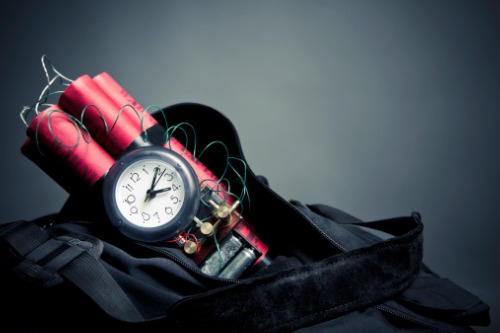

Yesterday the UK’s terror level was reduced to its lowest levels since 2014, marking the first time the threat assessment has been cut in two years. The grading is now “substantial” – down from “severe” – meaning a terrorist attack is “likely” rather than “highly likely”.
The process, based on the very latest in intelligence, may prompt some to take a deep sigh of relief and feel a little more confident in their day-to-day activities. However, history shows that it’s often just when we relax that the terrorists strike – the UK’s terror threat level was last raised to critical after the Manchester Arena bombing – making vigilance as important as ever.
When it comes to risk mitigation, the insurance industry has a key role to play. However, whereas the industry can offer support to businesses against issues like flooding by encouraging them to stock up on sandbags as the winter season approaches, or against cyberattacks by prompting regular back-ups and phishing training, what exactly can be done to mitigate against the threat of terrorism when the action of the terrorist is so hard to predict?
“It’s not that you can prepare for a bomb blast,” explained Geoff Stilwell, CEO and MD of Beech Underwriting, told Insurance Business, “but it’s about having a larger disaster recovery plan in place. We have regular communication with brokers and you’d be surprised how many businesses don’t have such a recovery plan.
“For example, if you are only operating out of one distribution unit – a central depot that products come into, are loaded on to a truck and out they go - if you have a situation where an incident occurs nearby, where are you going to trade from? Don’t put all your eggs in one basket.”
According to Stilwell, mitigating the impact of a terrorist incident is similar to mitigating almost any other incident and that means not saying “it will do, it will do” and instead making sure you’re carrying out back-ups on a regular basis.
“Have you got back-ups of your computers?” he asked. “Do you carry out regular back-ups and where do you store those back-ups? Make sure you are on top of your emails and accounts - in these days of electronic banking, it’s vital.
“Make sure that your computers do not sit on the ground floor too – because what happens if the toilet system breaks and the water is pumping through the offices? Make sure things are off the ground, make sure you do the back-up.”
Still, no matter what effort you make, an impactful terrorist can find a way through security measures – but taking steps to cover your safety bases can prove beneficial should a claim ultimately prove necessary.
“All you can do is the best you can,” said Stilwell. “For example, there was recently a child killed outside a nightclub and the local licensing authorities took away the club’s licence. They have reinstated it, but they’ve had to have metal scanners installed to scan and search you going into the club. Restaurants and nightclubs are having to take the next step to stop people coming in with weapons.
“You can’t prepare for every eventuality, but you can be vigilant. Make sure if you run a business where there are a lot of people you have an escape route, you comply with all the rules and regulations, you have back-ups, and that the staff you have know what to do in the event of an incident. It won’t solve the problem, but it will help you pick up the pieces a lot faster.”
